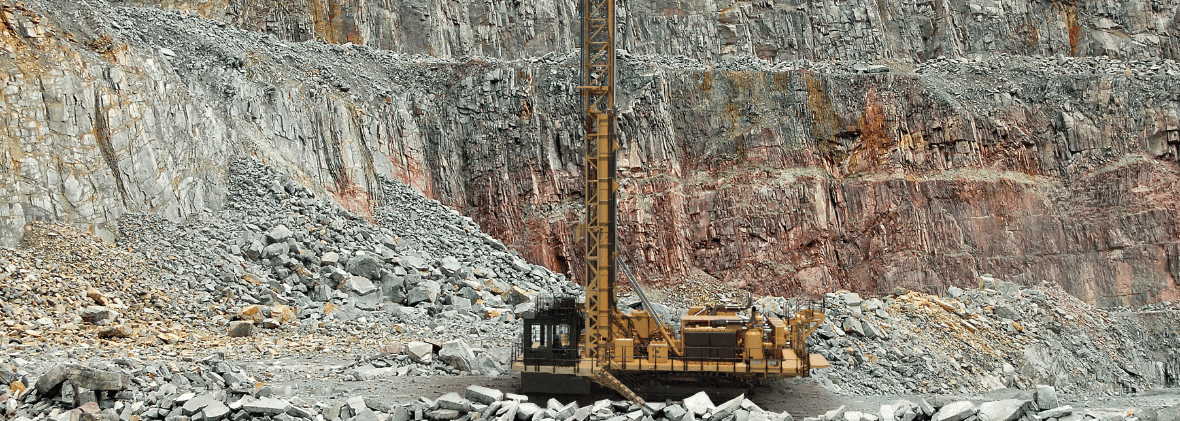
What Are the Most Common Construction Drills Uses?
Construction drills are essential tools on a variety of jobsites, including mining and oil and gas rigs. From creating blast holes to setting fence posts, they provide the power and precision needed for tough jobs. This guide explains what construction drills are, how they’re used and the different types available.
What Is a Construction Drill?
A construction drill is heavy-duty equipment built to bore holes in soil, rock, or concrete. Unlike handheld drills, these machines are mounted on rigs, trucks, or excavators, making them capable of handling larger, more demanding projects.
What Are Construction Drills Used For?
Contractors and crews rely on drills for tasks such as:
- Blasting: Drilling holes for explosives in mining or quarry operations
- Foundations: Boring deep holes for piles, piers, or caissons in building construction
- Utility installation: Creating passages for pipes, cables, or conduits
- Fencing: Drilling postholes for agricultural, residential, or commercial fences
- Geotechnical work: Sampling soil and rock for testing and site analysis
What Types of Construction Drills Are There?
Construction drills come in two main categories, each with specialized subtypes:
Auger Drills
Auger drills use helical screw blades to bring material to the surface as they dig. They’re efficient for soil, clay and some soft rock, making them common in foundation, utility and agricultural work.
Subtypes include:
- Continuous flight augers: Create deep, straight holes while maintaining bore stability
- Bucket augers: Scoop out material for larger diameter holes, often in construction and geotechnical projects
Percussive Drills
Percussive drills break rock and hard ground by striking repeatedly with a hammering action. They’re essential for mining, quarrying and hard rock construction projects.
Subtypes include:
- Top hammer drills: Top hammer drills deliver blows from the drill head above the rod, making them ideal for mid-depth work.
- Down-the-hole (DTH) drills: DTH drills place the hammer at the hole’s bottom for greater accuracy in deep rock drilling.
How Do You Choose the Right Drill?
The best drill depends on the material, hole size and depth needed. Auger drills are efficient for softer soils and shallow foundations, while percussive drills handle hard rock and deep mining projects. Contractors may also choose based on mobility: smaller rigs for urban jobsites or large rigs for remote areas.
Construction Drill FAQs
What’s the difference between auger and percussive drills?
Auger drills cut and lift material out of the hole, while percussive drills break rock by hammering. Each is suited for different ground conditions.
Can construction drills be rented for short-term jobs?
Yes. Rental is a cost-effective way to get powerful drilling equipment without long-term ownership costs.
Are construction drills safe to use?
Yes, when operated correctly. Crews should follow safety training, wear PPE and inspect equipment before use.
Rent Construction Drills From The Cat® Rental Store
The Cat® Rental Store offers reliable construction drills for foundation, utility and mining projects. You can browse our rental equipment or find the Cat Rental Store near you to connect with your local dealer today.
With flexible terms and dealer support, renting ensures you always have well-maintained, reliable machines that are right for the job.
Find The Cat Rental Store Near You